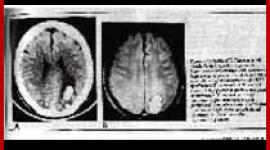Helping Yourself and Others Deal With Death
Learn how to help a child or an adult friend or family member deal with the death of a loved one and how to support someone in their grief.
- How can I help a child deal with the death of a loved one?
- How can I help an adult friend or family member deal with the death of a loved one?
- How can I deal with the death of a loved one?
How can I help a child deal with the death of a loved one?
 Children grieve just as adults do. Any child old enough to form a relationship will experience some form of grief when a relationship is severed. Adults may not view a child behavior as grief as it is often demonstrated in behavioral patterns which we misunderstand and do not appear to us to be grief such as "moody," "cranky," or "withdrawn." When a death occurs children need to be surrounded by feelings of warmth, acceptance and understanding. This may be a tall order to expect of the adults who are experiencing their own grief and upset. Caring adults can guide children through this time when the child is experiencing feelings for which they have no words and thus can not identify. In a very real way, this time can be a growth experience for the child, teaching about love and relationships. The first task is to create an atmosphere in which the child's thoughts, fears and wishes are recognized. This means that they should be allowed to participate in any of the arrangements, ceremonies and gatherings which are comfortable for them. First, explain what will be happening and why it is happening at a level the child can understand. A child may not be able to speak at a grandparent's funeral but would benefit greatly from the opportunity to draw a picture to be placed in the casket or displayed at the service. Be aware that children will probably have short attention spans and may need to leave a service or gathering before the adults are ready. Many families provide a non-family attendant to care for the children in this event. The key is to allow the participation, not to force it. Forced participation can be harmful. Children instinctively have a good sense of how involved they wish to be. They should be listened to carefully.
Children grieve just as adults do. Any child old enough to form a relationship will experience some form of grief when a relationship is severed. Adults may not view a child behavior as grief as it is often demonstrated in behavioral patterns which we misunderstand and do not appear to us to be grief such as "moody," "cranky," or "withdrawn." When a death occurs children need to be surrounded by feelings of warmth, acceptance and understanding. This may be a tall order to expect of the adults who are experiencing their own grief and upset. Caring adults can guide children through this time when the child is experiencing feelings for which they have no words and thus can not identify. In a very real way, this time can be a growth experience for the child, teaching about love and relationships. The first task is to create an atmosphere in which the child's thoughts, fears and wishes are recognized. This means that they should be allowed to participate in any of the arrangements, ceremonies and gatherings which are comfortable for them. First, explain what will be happening and why it is happening at a level the child can understand. A child may not be able to speak at a grandparent's funeral but would benefit greatly from the opportunity to draw a picture to be placed in the casket or displayed at the service. Be aware that children will probably have short attention spans and may need to leave a service or gathering before the adults are ready. Many families provide a non-family attendant to care for the children in this event. The key is to allow the participation, not to force it. Forced participation can be harmful. Children instinctively have a good sense of how involved they wish to be. They should be listened to carefully.
How can I help an adult friend or family member deal with the death of a loved one?
Someone you know may be experiencing grief - perhaps the loss of a loved one, perhaps another type of loss - and you want to help. The fear of making things worse may encourage you to do nothing. Yet you do not wish to appear to be uncaring. Remember that it is better to try to do something, inadequate as you may feel, than to do nothing at all. Don't attempt to sooth or stifle the emotions of the griever. Tears and anger are an important part of the healing process. Grief is not a sign of weakness. It is the result of a strong relationship and deserves the honor of strong emotion. When supporting someone in their grief the most important thing is to simply listen. Grief is a very confusing process, expressions of logic are lost on the griever. The question "tell me how you are feeling" followed by a patient and attentive ear will seem like a major blessing to the grief stricken. Be present, reveal your caring, listen. Your desire is to assist your friend down the path of healing. They will find their own way down that path, but they need a helping hand, an assurance that they are not entirely alone on their journey. It does not matter that you do not understand the details, your presence is enough. Risk a visit, it need not be long. The mourner may need time to be alone but will surely appreciate the effort you made to visit. Do some act of kindness. There are always ways to help. Run errands, answer the phone, prepare meals, mow the lawn, care for the children, shop for groceries, meet incoming planes or provide lodging for out of town relatives. The smallest good deed is better than the grandest good intention.
How can I deal with the death of a loved one?
Bereavement is a powerful, life-changing experience that most people find overwhelming the first time. Although grief is a natural process of human life, most of us are not inherently able to manage it alone. At the same time, others are often unable to provide aid or insight because of discomfort with the situation and the desire to avoid making things worse. The following passage explains how some of our "normal" assumptions about grief may make it more difficult to deal with.
Five Assumptions That May Complicate
-
Life prepares us for loss. More is learned about loss through experience than through preparation. Living may not provide preparation for survival. Handling grief resulting from the death of a loved one is a process that takes hard work. The fortunate experience of a happy life may not have built a complete foundation for handling loss. Healing is built through perseverance, support and understanding. The bereaved need others: Find others who are empathetic.
-
Family and friends will understand. If a spouse dies children lose a parent, a sibling loses a sibling, a parent loses a child and a friend loses a friend. Only one loses a spouse. Each response is different according to the relationship. Family and friends may not be capable of understanding each other thoroughly. Consider the story of Job's grief in the Bible. Job's wife did not understand his grief. His friends did their best work the first week when they just sat and did not speak. It was when they began to share their judgements of Job and his life that they complicated Job's grief. Allowance must be made so that grief may be experienced and processed over time. The bereaved need others: Find others who are accepting.
-
The bereaved should be finished with their grief within one year or something is wrong. During the first year the bereaved will experience one of everything for the first time alone: anniversaries, birthdays, occasions, etc. Therefore grief will last for at least one year. The cliche, "the healing hands of time," does not go far enough to explain what must take place. The key to handling grief is in what work is done over time. It takes time and work to decide what to do and where to go with the new and changed life that is left behind. The bereaved need others: Find others who are patient.
-
Along with the end of grief's pain comes the end of the memories. At times, the bereaved may embrace the pain of grief believing it is all they have left. The lingering close bond to the deceased is sometimes thought to maintain the memories while, in fact, just the opposite is true. In learning to let go and live a new and changed life memories tend to come back more clearly. Growth and healing comes in learning to enjoy memories. The bereaved need others: Find new friends and interests.
-
The bereaved should grieve alone. After the funeral service is over the bereaved may find themselves alone. They may feel as though they are going crazy, painfully uncertain in their world of thoughts and emotions. The bereaved begin to feel normal again when the experience is shared with others who have lost a loved one. Then, in reaching out, the focus of life becomes forward. The bereaved need others: Find others who are experienced.
Provided courtesy of Jack Redden, CCE, M.A., President; John Redden, M.S., Vice President, Cemetery-Mortuary Consultants Inc., Memphis, Tennessee
next: What Is Grief?
~ depression library articles
~ all articles on depression
APA Reference
Gluck, S.
(2008, December 19). Helping Yourself and Others Deal With Death, HealthyPlace. Retrieved
on 2026, March 4 from https://www.healthyplace.com/depression/articles/helping-yourself-and-others-deal-with-death



